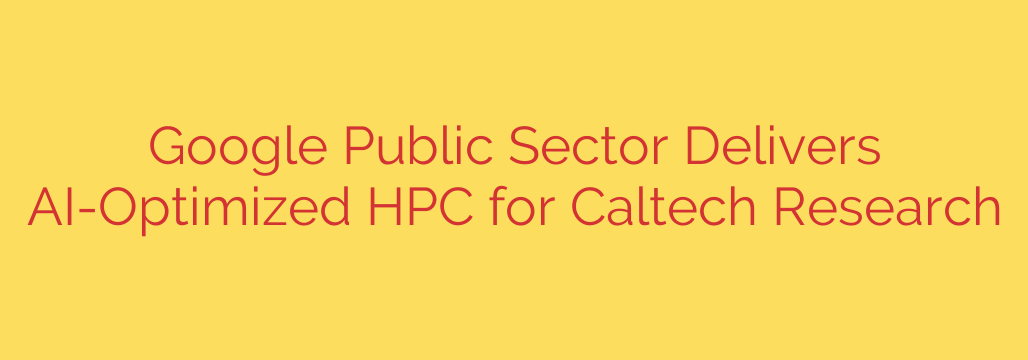
Leading researchers are gaining a significant edge in pushing the boundaries of scientific understanding, thanks to a groundbreaking collaboration bringing together powerful high-performance computing (HPC) with advanced artificial intelligence (AI) capabilities. This integration provides scientists with the tools necessary to tackle incredibly complex problems and process massive datasets at unprecedented scales.
Institutions focused on cutting-edge research are leveraging these optimized computing environments to dramatically accelerate their work. By incorporating AI directly into the HPC infrastructure, researchers can achieve insights and perform simulations with unprecedented speed and efficiency. This isn’t just about making existing processes faster; it’s about enabling entirely new kinds of research that were previously computationally impossible.
Fields ranging from astronomy and particle physics to genomics and climate modeling stand to benefit immensely. Analyzing vast amounts of data from telescopes, particle accelerators, or biological experiments often requires immense processing power. The combination of AI-optimized HPC allows for more sophisticated data analysis, pattern recognition, and simulation, directly leading to faster and more impactful scientific discovery.
This development highlights how leading technology providers are working closely with academic powerhouses to build the infrastructure essential for the next generation of scientific breakthroughs. It underscores a commitment to providing researchers with the most advanced computational resources available, fueling innovation and helping to solve some of the world’s most challenging scientific mysteries. The focus is on empowering researchers to accelerate discoveries that can have profound impacts across numerous disciplines.
Source: https://cloud.google.com/blog/topics/public-sector/google-public-sector-supports-ai-optimized-hpc-infrastructure-for-researchers-at-caltech/








